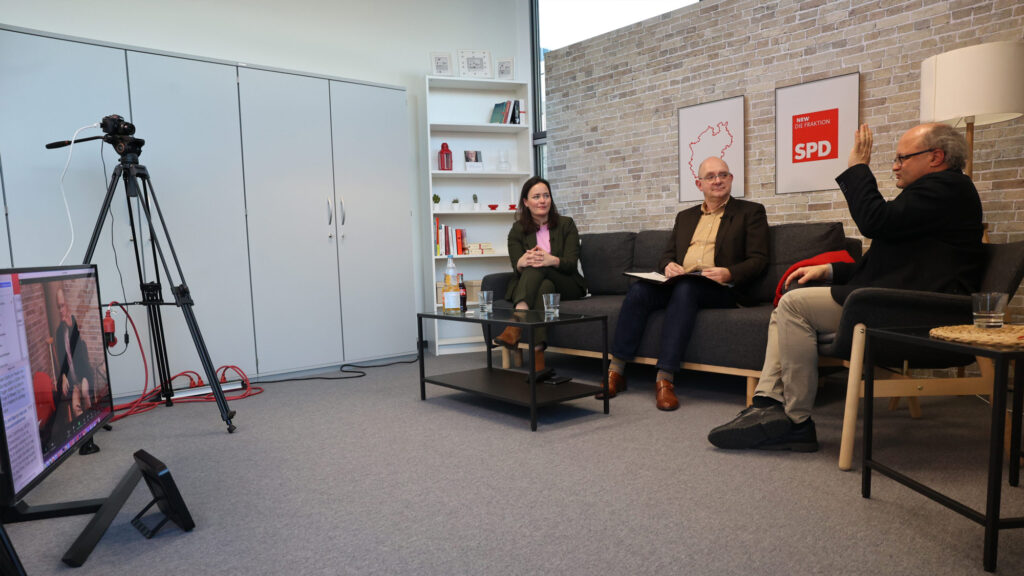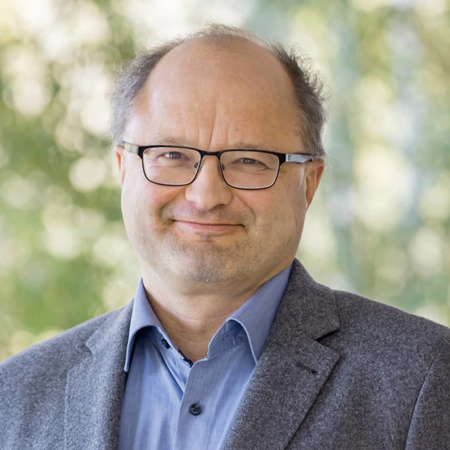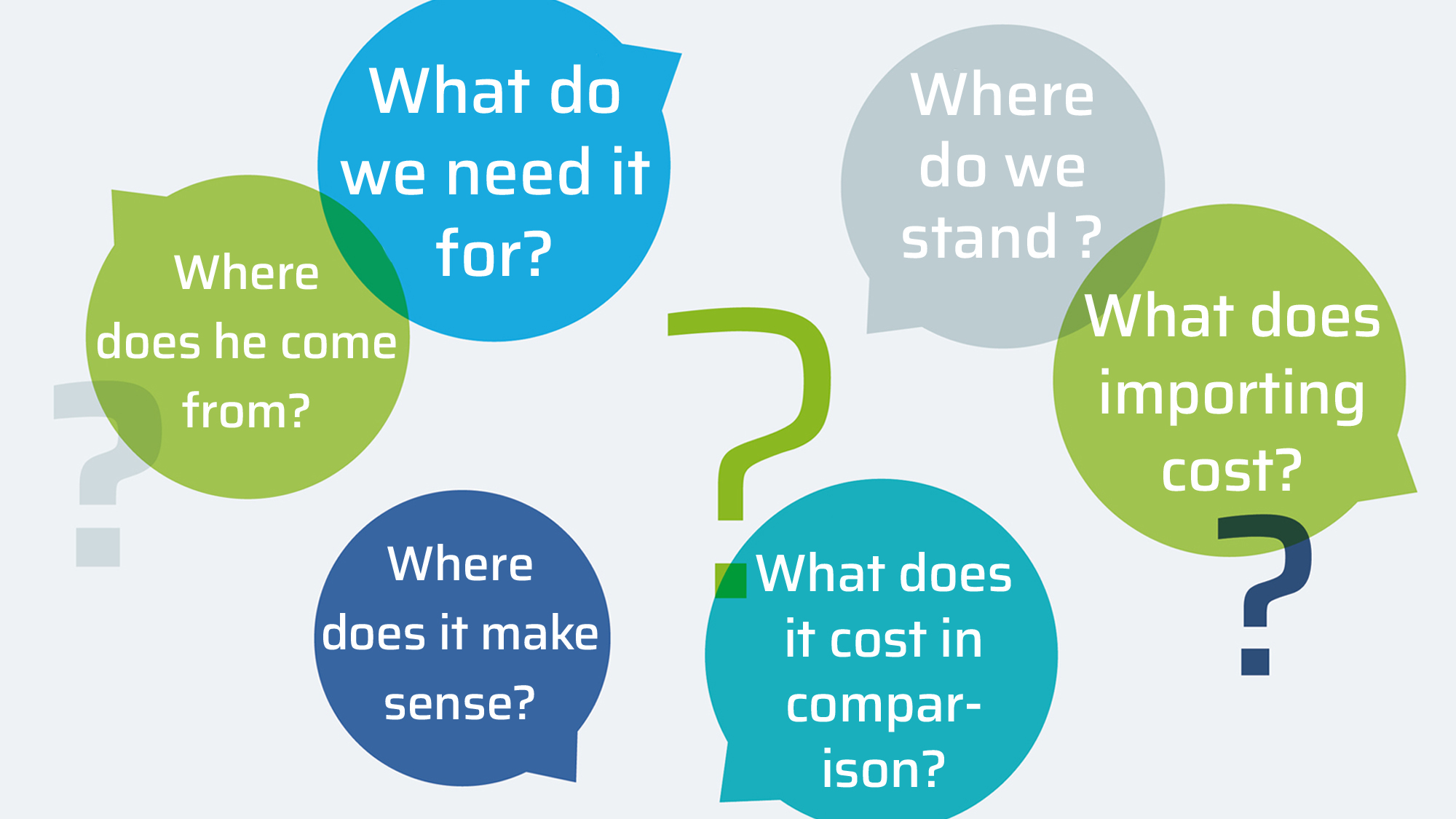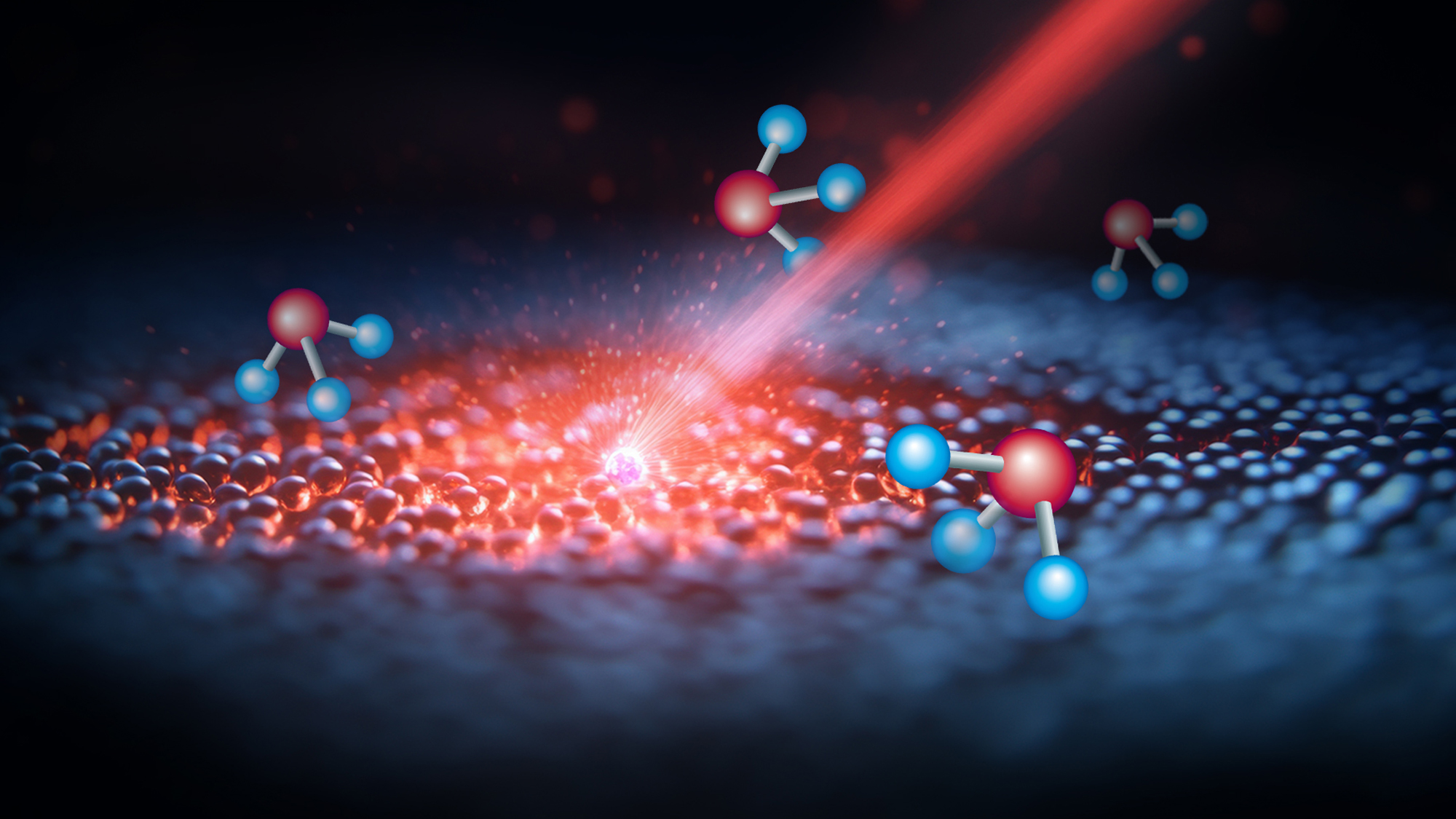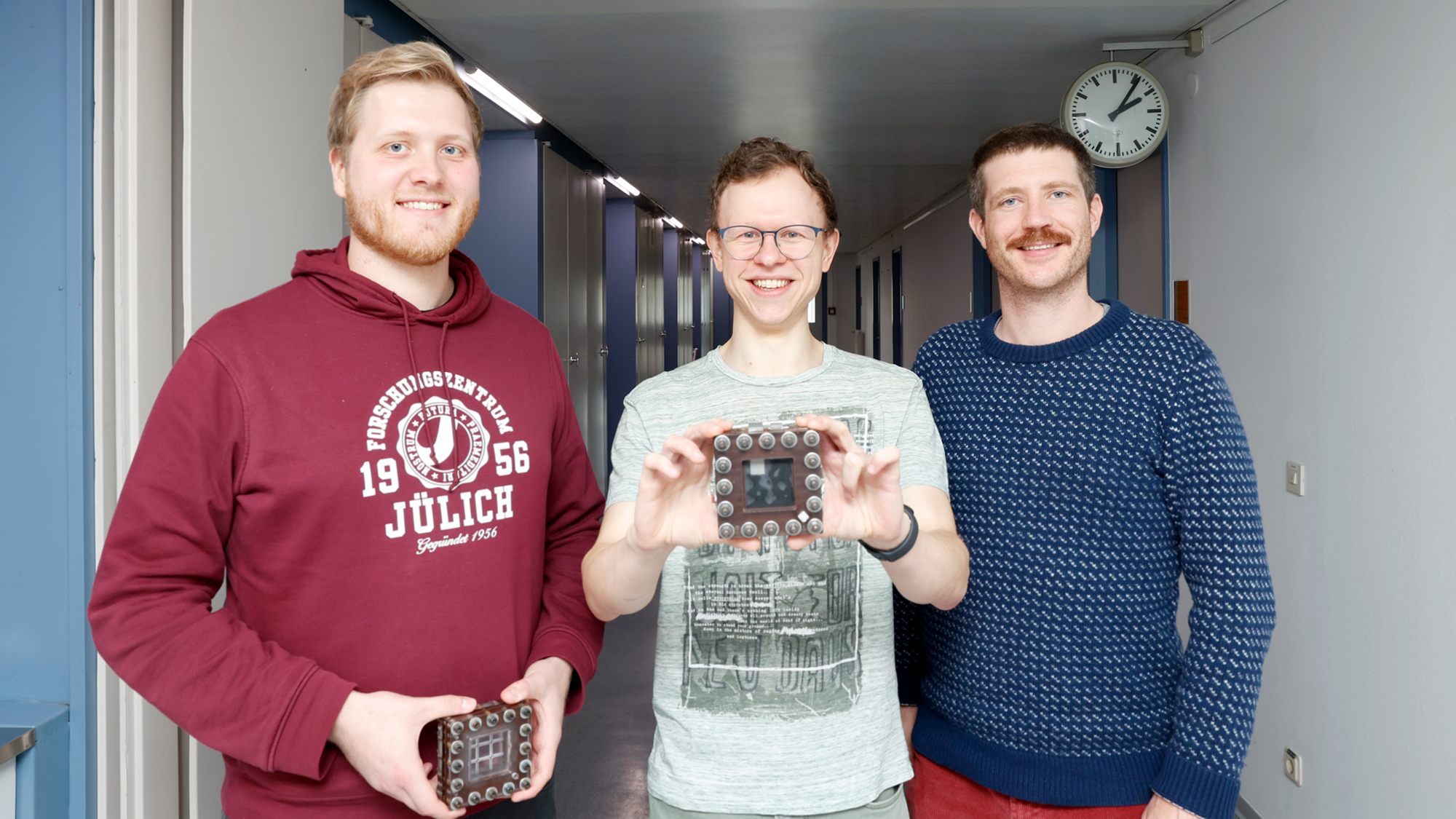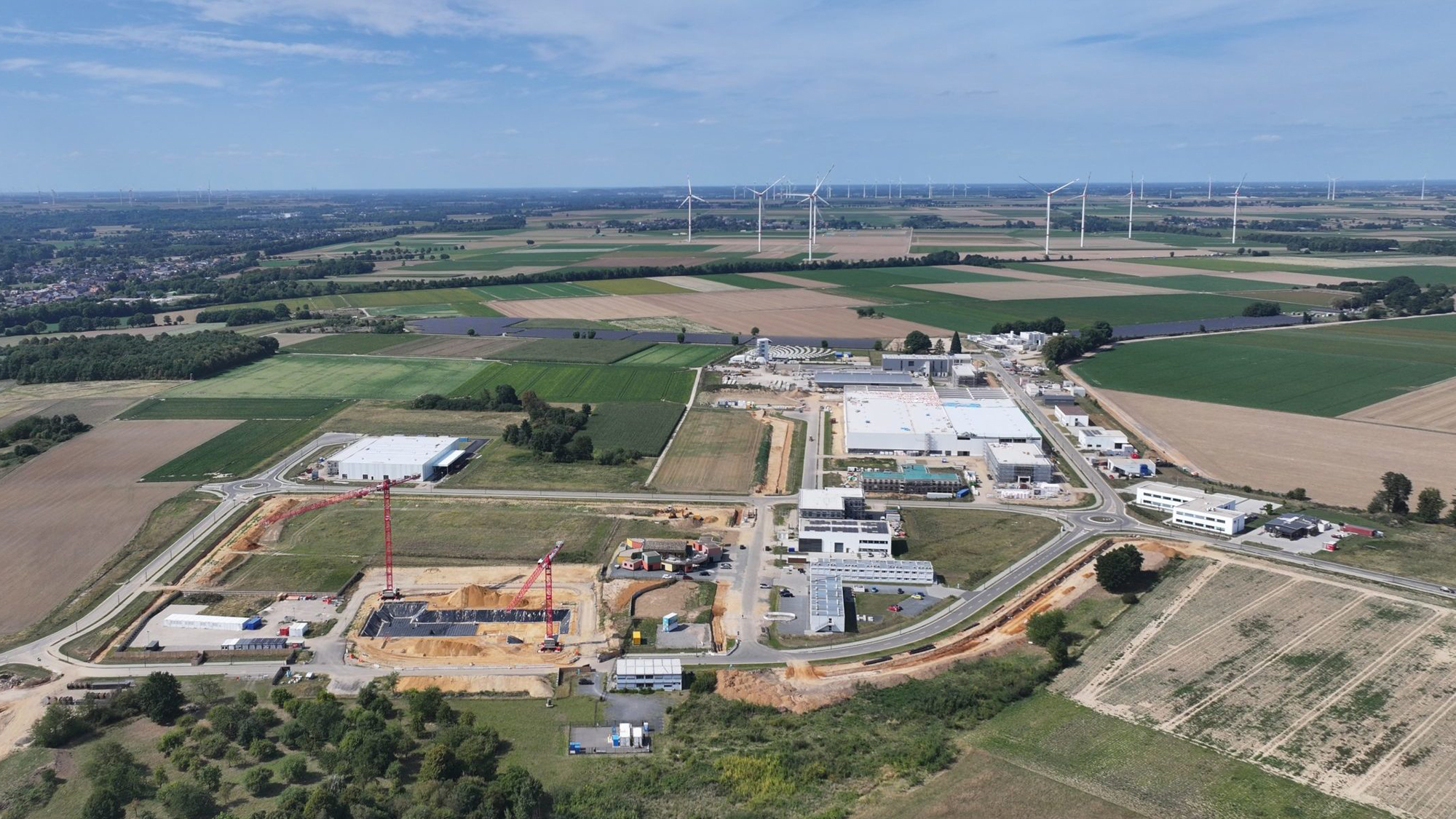Discussion with the NRW-SPD parliamentary group about the environmentally friendly energy economy of the future
Experts invited to a political talk show usually have differing opinions. Otherwise the discussion that is hoped for would not take place. “You certainly wouldn’t be able to invite the two of us,” Prof. Dr. Peter Wasserscheid said to Dr. Saskia Wessel. Wasserscheid is a hydrogen researcher and spokesperson for the Helmholtz hydrogen cluster (HC-H2). Wessel is a battery researcher and division director at the Fraunhofer Research Institution for Battery Cell Production FFB in Münster. “What we are working on is something that is highly complementary in the energy system of the future,” Wasserscheid explained to the NRW-SPD parliamentary working group on business, industry, climate protection, and energy. Batteries and hydrogen are not in conflict with each other; they are two components of the solution.
The political party invited Wessel and Wasserscheid to a discussion on the central role of energy storage in the energy transition and what technologies should be used for what purposes. The conclusion: hydrogen and batteries complement each other with their respective strengths in the energy system of the future. This was the message that both researchers conveyed to the politicians.
The SPD working group chaired by economic policy spokesperson André Stinka had invited Wessel and Wasserscheid to provide an update on the current status of two important storage technologies in the energy system of the future. “You could say that the battery is ten years ahead,” said Wasserscheid, referring to research that had begun earlier. Battery-powered cars are better established on the market than hydrogen cars.
“When we talk about large, strategic quantities, then we’re referring to hydrogen in storage facilities that are charged much less frequently.”
Prof. Peter Wasserscheid, Founding Director of the Institute for a Sustainable Hydrogen Economy (INW)
Wessel made it clear that one technology would not work without the other. “Both technologies are dependent on each other. For example, the battery supplies the electrolysis that is used to produce hydrogen. This means we can store large amounts of energy with hydrogen. These large quantities would not be economical with batteries,” explained Wessel. Wasserscheid added that the battery is better for smaller applications where charging and discharging is frequent. “When we talk about large, strategic quantities, then we’re referring to hydrogen in storage facilities that are charged much less frequently.” Hydrogen also makes more sense for large industrial customers, such as the steel industry.
Don’t rebuild, but rethink
The SPD parliamentary representatives asked whether a new infrastructure with new pipelines, networks, and fuel storage facilities would be required for an environmentally friendly energy system of the future. In response, Wasserscheid made a counterproposal and suggested we “think in terms of the structures that are already in place.” Hydrogen is compatible with many infrastructures that distribute and store gas or diesel. Using existing structures is a much quicker way for humanity to slow down global warming as quickly as possible, Wasserscheid added.
Another topic on which Wessel and Wasserscheid were in agreement was mobility. “There are applications for both technologies,” said Wessel. Wasserscheid presented a rough formula: “Wherever I currently drive with petrol, the battery is a better solution in many instances. Hydrogen has advantages in areas that currently rely on diesel.” Both fuels are available for passenger cars. Wasserscheid explained a possible division as follows: “If I drive 50 kilometres to and from work during the day and can charge the car overnight, then a battery makes sense. However, someone who has to cover long distances all at the one time would be better served by hydrogen in future.”
Comparison with the cow in the garden
Stinka brought up to the topic of efficiency, stating that hydrogen is known to be less efficient, as energy is required to produce it. Wasserscheid responded that the debate about efficiency is not the right one. “It is more important that I have a sustainable energy carrier available at a low cost.” He drew on an example to underline his point: if you want milk, it is more efficient to have a cow in your garden. This is more efficient that buying milk in the supermarket, as the production costs and routes are significantly reduced by having a cow in the garden, he added. “Despite this, almost nobody does this because milk bought in the supermarket is cheaper and less time consuming.”
Hydrogen = champagne?
Finally, the politicians addressed the issue of costs, with Stinka making the common comparison between hydrogen and champagne. Wasserscheid called for another way of thinking about the subject. Of course, hydrogen is expensive if it is produced in Germany with German energy costs, he explained. “However, our industry relies on being able to buy a kilogramme of hydrogen for less than two euros. Such a price is possible in many regions of the world, where there are more hours of sunshine or wind energy. Germany has always imported a large proportion of the energy it requires. This will continue to be the case in future. Green hydrogen will come from less populous regions where a lot of renewable energy can be harvested. This will not be Germany.”
Following their discussion, Stinka, Wessel, and Wasserscheid spoke about the energy economy of the future in a live broadcast hosted by the SPD parliamentary group. You can watch a recording of the live stream here.
The copyright for the images used on this website is held by Forschungszentrum Jülich, aligator kommunikation GmbH and
stock.adobe.com.
